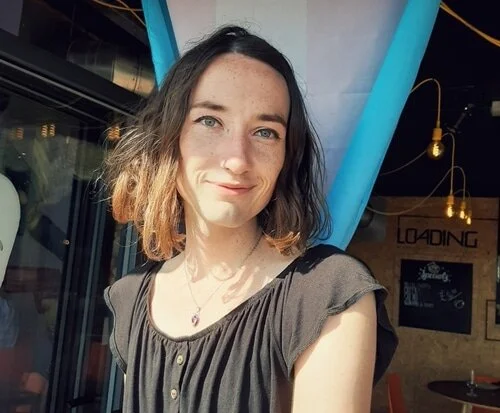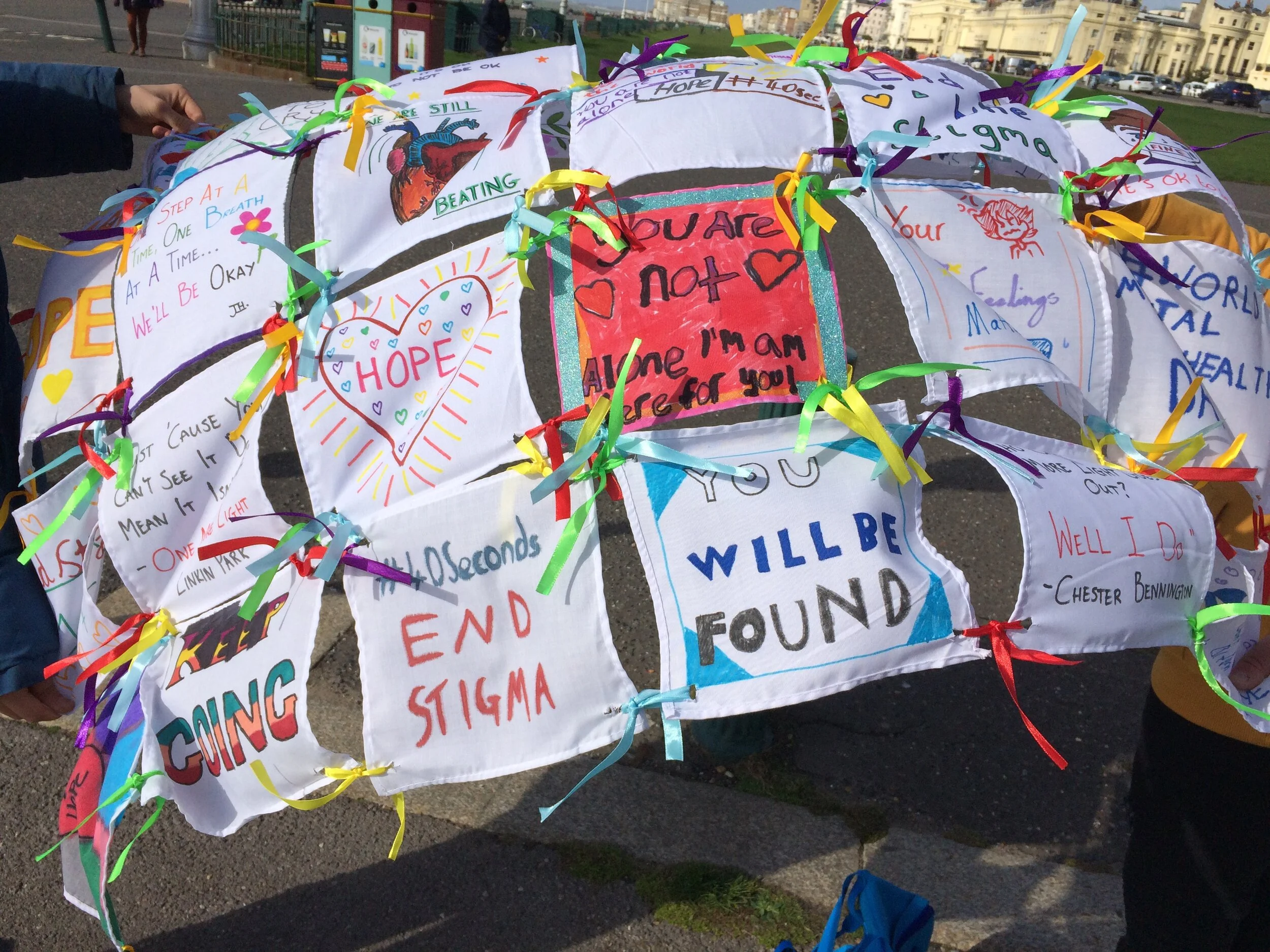From our Female Correspondent: Effie on issues facing LGBTQ+ youth
“I think if you're growing up unsure of yourself, with a severe lack of representation elsewhere, it's important that you can see that there are people like you. Adults who are well-adjusted, who are responsible, who are friendly, who are caring, who have support systems of their own”
(For a glossary of acronyms used in this piece, please scroll to the end)
2020 has in no way lived up to the optimistic expectations I’m sure many of us had for it on New Year’s Eve - not least for the LGBTQ+ community. Last month, news hit the headlines that reforms which would dramatically improve the lives of transgender people in this country might be shelved. This week, I chatted to Effie – herself a transwoman and fundraiser for LGBTU youth charity, Allsorts – about recent developments, and the issues facing the LGBTQ+ community today.
“It’s been a long two years waiting for a response to the Gender Recognition Act reforms and to me what’s happening is nowhere close to satisfactory. On a personal level, the way that we as trans people are being misrepresented is deeply upsetting.”
A little context. The Gender Recognition Act (GRA) was introduced in 2005 to allow people to change their legal gender. The process by which they can do this, however, is lengthy, expensive, and riddled with red tape. So, in 2018, the government held a public consultation with 100,000 people. 70% were in favour of reform. Two years later we still have not heard the government’s decisions.
Under the current GRA, trans people can be denied access to single-sex services such as public bathrooms, changing rooms, or shelters. Scrapping the proposed reforms will make this even worse. Figures such as Equalities Minister Liz Truss and author JK Rowling have claimed there need to be “safeguards” in place to “protect” women-only spaces, but to pivot the conversation to one of women’s safety is to ignore the disproportionate harm done to trans people on a daily basis.
Challenges facing LGBTQ+ youth today
“It’s the trifecta of prejudice, discrimination, exclusion.” Effie explains that although society may be changing, experiences of prejudice are still commonplace among LGBTQ+ youth. “In Allsorts’ most recent survey, we found that over 50% of young people had experienced some form of homophobia, biphobia or transphobia – and one in four had experienced it at home.” (70 young people surveyed, March 2020)
The toll this takes – especially on a young, developing mind – can be devastating. “Time and again, LGBTQ+ people are shown to experience mental health problems such as depression, anxiety, and suicide ideation at wildly disproportionate rates to their non-LGBT+ peers.” Ignoring these realities in favour of headline-grabbing soundbites is putting thousands of young people under unimaginable stress.
“Another issue, particularly for trans people, is the lack of representation – or even misrepresentation – in mainstream media. We need more role models, more positive, empowering stories about the wonderful achievements of trans people, for trans people to be celebrated, rather than have their column inches dedicated to stories about the GRA. If I’d seen more people like who I am now when I was growing up, my journey would have been much smoother.”
What does Allsorts do?
This is where organisations like Allsorts come in. The Sussex-based charity works with children and young people who are lesbian, gay, bisexual, transgender or unsure of their gender identity and/or sexual orientation. Their three-pronged approach focuses on direct support for young people (youth groups, one-to-one support, advocacy services and volunteering opportunities), support for parents and carers, and training and education for the wider community. Founded in 1999, Allsorts is run by a team of passionate staff and community volunteers who all come from the LGBTQ+ community themselves. “I think it comes down to having an understanding and personal experience of this kind of discrimination – whether that’s at school, at home, or in the workplace. It strengthens your resolve to make a difference. It’s also really important that these young people can see staff and think ‘OK, well I’m not alone.’”
Being surrounded by those who share her experiences also drives Effie in the work she does raising funds and awareness for Allsorts. “It helps when I’m highlighting our work publicly and sharing the experiences of young people we’ve helped. It’s something that resonates with me on a deeply personal level.”
Balancing personal experience with the professional
It is important to recognise, however, that this overlap between the personal and the professional can take a toll. Effie’s job calls her to research the issues impacting LGBTQ+ people, to be one of the public faces of Allsorts and, implicitly, to be an example of the trans experience. “It’s incredibly empowering, but it can be draining too. Burnout is real.”
Being so close to the sphere you work in, she explains, can be a double-edged sword. At events organised by and for LGBTQ+ charities, the experience is heartening. “You walk in and you think ‘oh my god, there is so much incredible work going on here and so many people with the same experiences, doing the same thing’. It’s really healing and cathartic and beautiful.” On the flipside, at times when she has been the only representative of a charity which works with trans people – and the only visible trans person in the room – she has been misgendered and had meetings derailed by the trans ‘debate’. “By no means always, but enough that it plays on my mind on the way to meetings or networking events.”
The importance of intersectionality
It’s also important not to get so entwined with your professional role that you forget to champion the experiences of other members of your community, something Effie is keenly aware of. When I asked her how she felt about developments in the GRA, her first response was to direct the spotlight to the more pressing issue. “On a personal level it’s brutal, but it’s crucial to recognise that this will impact transwomen of colour to a much higher degree. We can talk about the disproportionate levels of poor mental health, suicide ideation and violence for trans people, but within that you have to recognise this is happening to Black trans people at a far higher rate.”
My interview with Effie takes place while the Black Lives Matter movement is on everyone’s mind, and our talk turns to how charities like Allsorts are reacting. “Our formal work around BAMER-POC and, more specifically, QTIPOC inclusion started last year. We were funded for a one-year pilot inclusion programme which, alongside more tailored one-to-one support for young BAMER people and workshops for allies, staff and volunteers, resulted in an amazing resource called Unboxing our Identities.”
This resource, which was collated by inclusion worker Marquita Smith, recognises that BAMER/POC people have been, and continue to be, largely excluded from the narrative around LGBTQ+ history. It unpicks thorny issues such as microaggressions, tokenism, unconscious bias, and how to be a real ally to QTIPOC communities. Now the initial funding is over, Allsorts is going back to the drawing board to review what worked and what can be improved or built on.
“Mainly we’re trying to work out how we can be better. There’s a hashtag - #charitysowhite – and we recognise that’s an issue for us as a charity. We’re seeing who we can work with to address the intersections of BAMER people and LGBTQ+ identities, continuing to educate ourselves, platforming the voices of QTIPOC and sharing the resources we’ve collated.”
Most of all, Effie and her colleagues are continuing to dedicate their time, energy and life experiences to supporting young people, wherever they come from. “We’re a youth service, so our message is ‘we’re here to support all LGBTQ+ people. We’re here to stand beside them.’ It’s not combative. Our focus is, and always will be, supporting children and young people.”
And you can find out more about what Effie and the amazing team at Allsorts are doing here.
Glossary
BAMER = Black, Asian, minority ethnic, or refugee
LGBTQ+ = Lesbian, gay, bisexual, transgender, queer, plus
LGBTU = Lesbian, gay, bisexual, transgender, unsure
POC = People/Person of colour
QTIPOC = Queer, trans, and intersex people of colour



